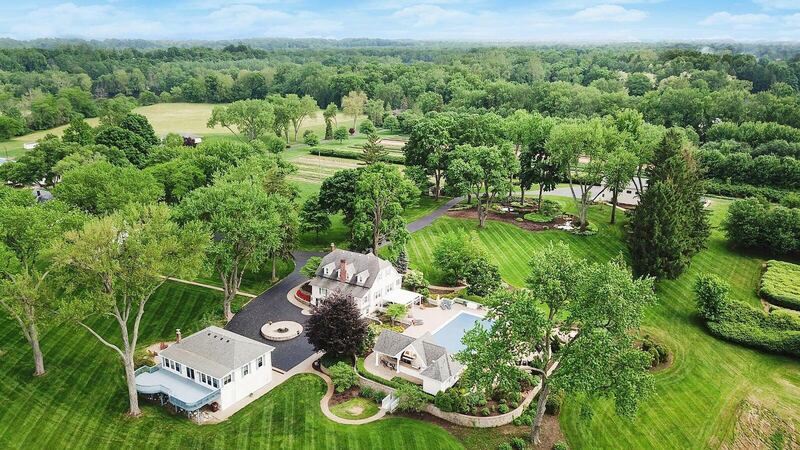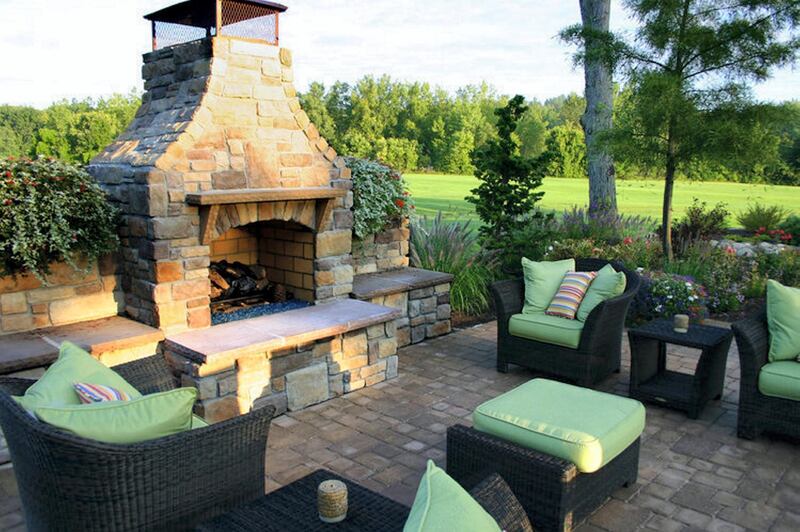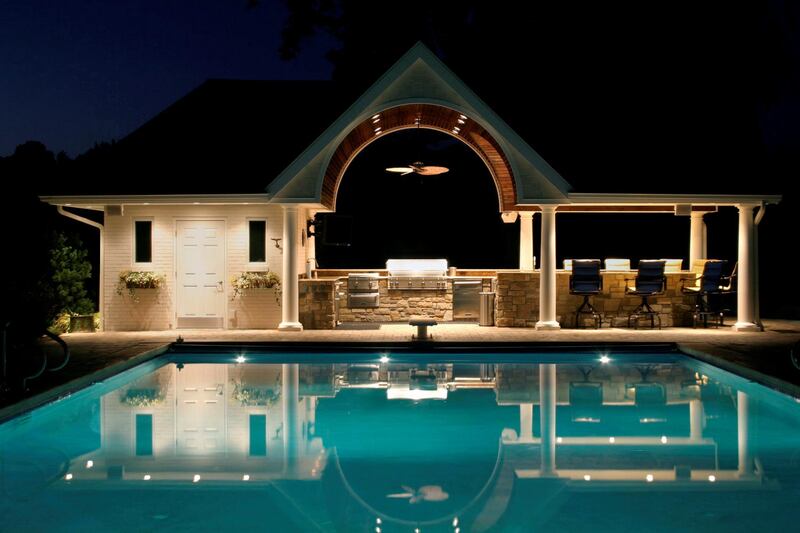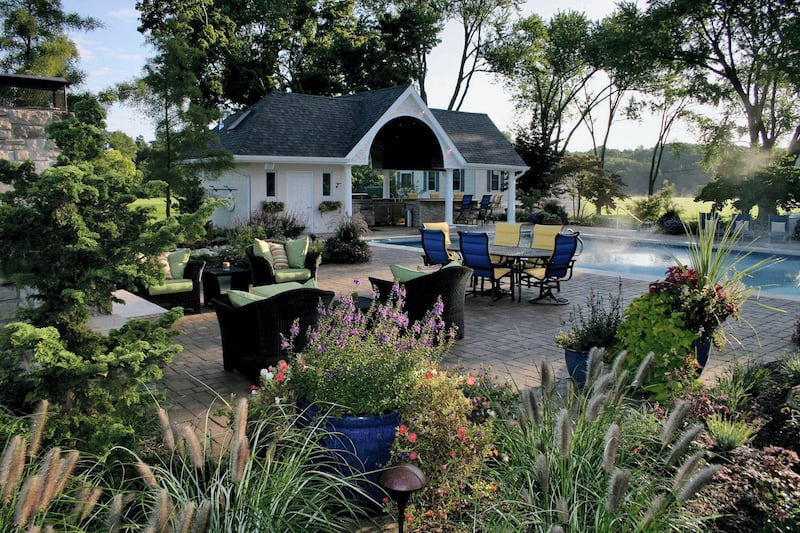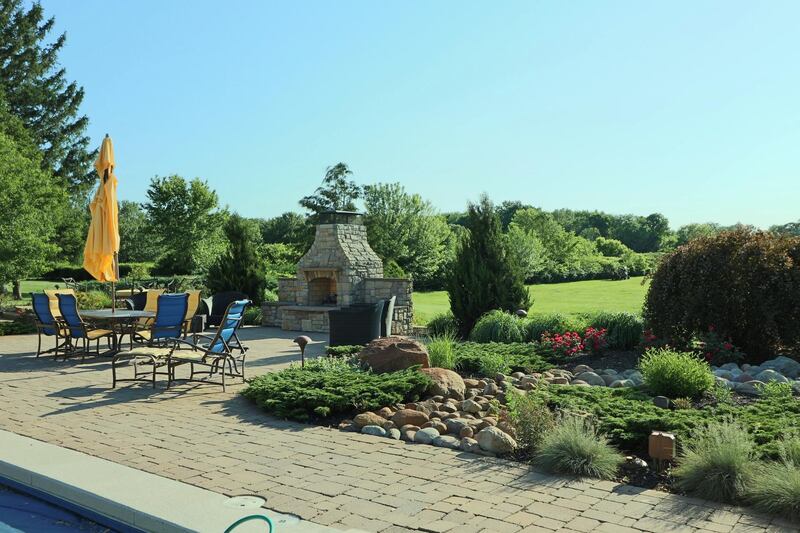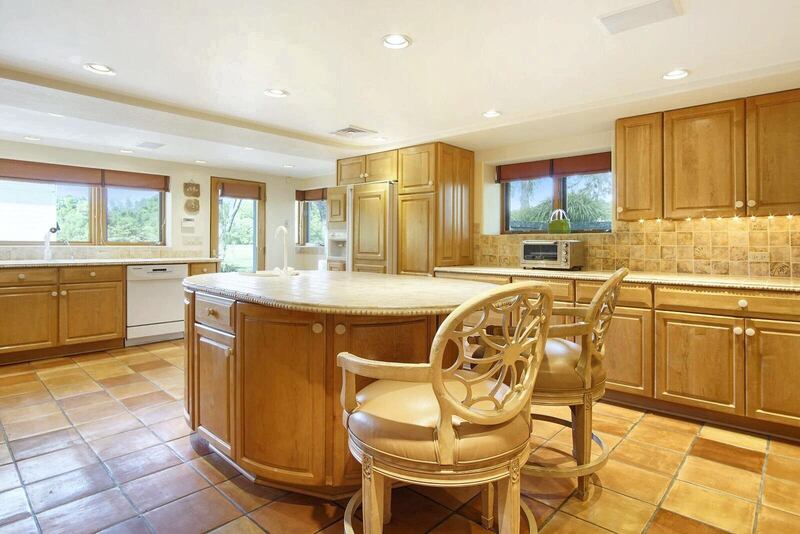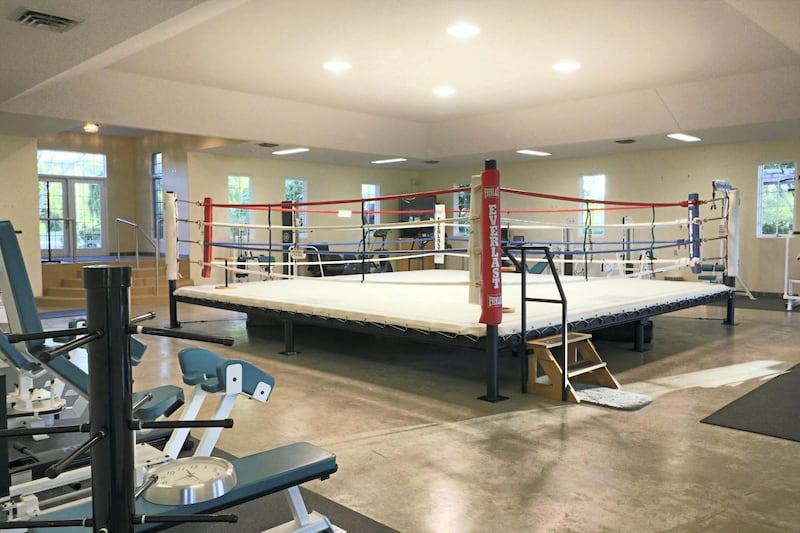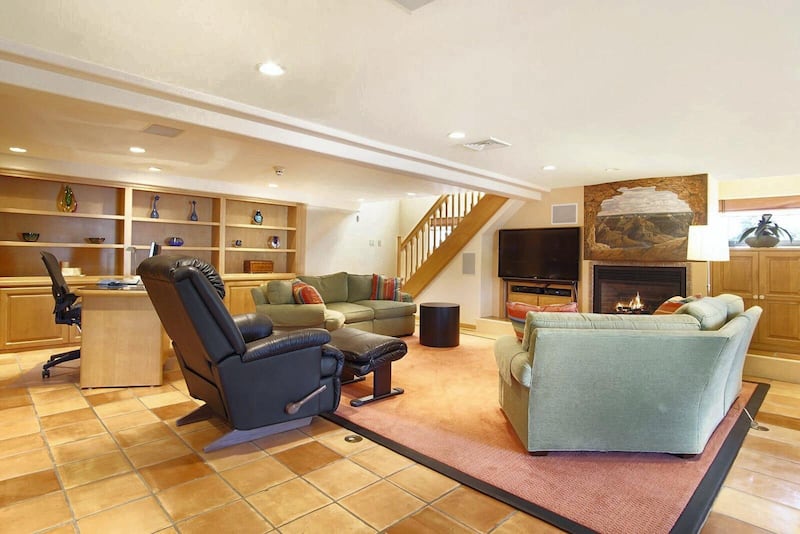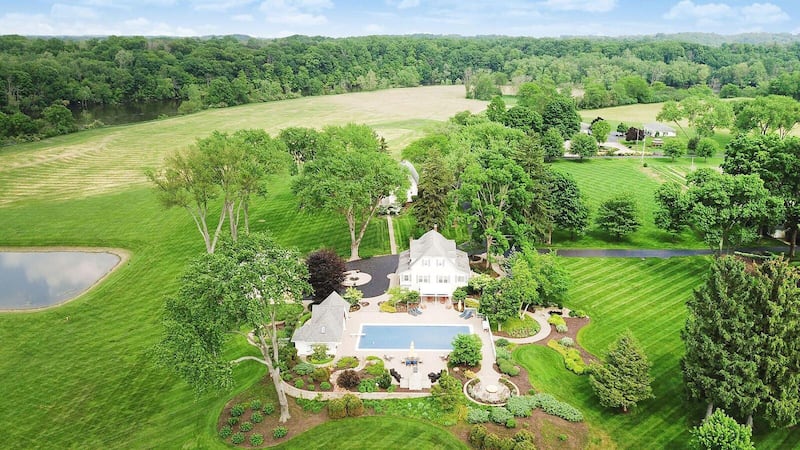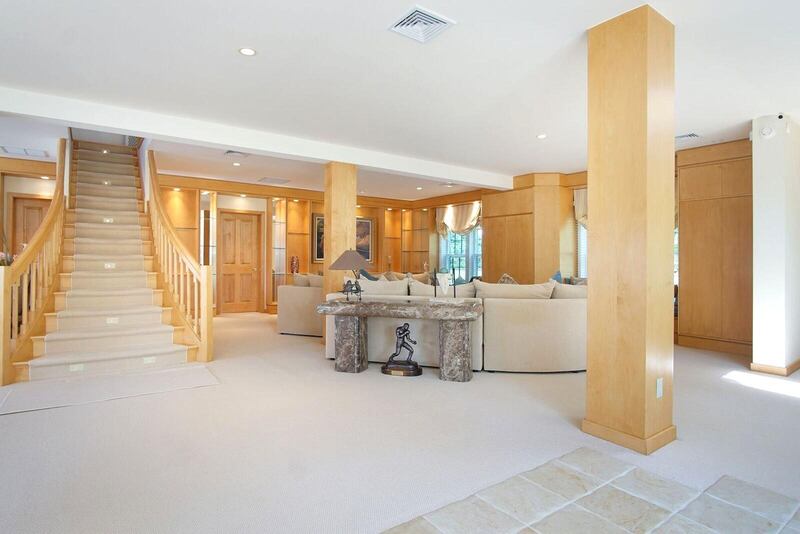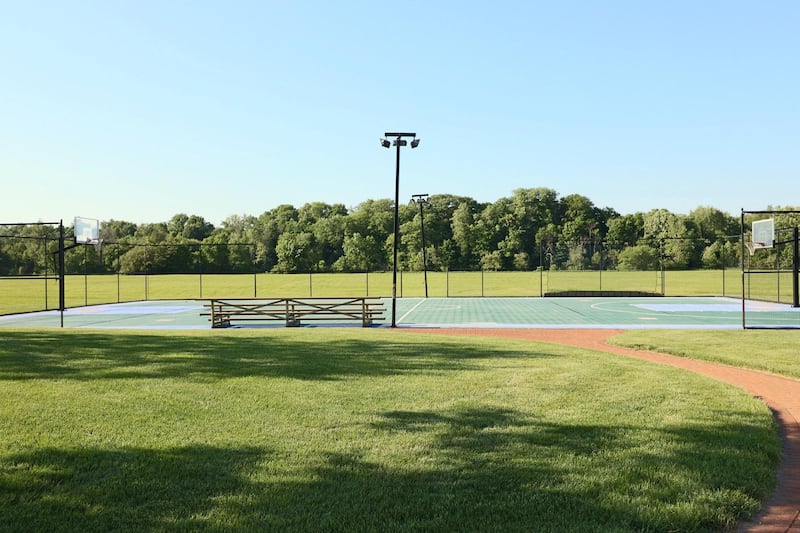Unlike most other properties in a buyer’s market, this unassuming Michigan farmhouse is on sale for the non-negotiable price of US$2,895,037 (Dh10.6 million). The last two digits of this figure, which was decided by Lonnie Ali, wife of the late Muhammad Ali, are a reference to the boxer’s 37 career knockouts.
The world champion bought the Michigan property – dubbed Rope-a-Dopes after his distinct boxing style – in 1975, and used its secluded surrounds as a respite from the paparazzi-infused hustle and bustle encircling the family’s main home in Arizona. Accordingly, privacy is key when it comes to the layout and design features of this residence.
The 32-hectare estate is enclosed on three sides by the St Joseph River and by lush trees on the fourth, and as such has no immediate neighbours or prying onlookers. The gated entryway opens to a circular drive in a wide, verdant meadow, which eventually leads on to the main house. The grounds are marked with dedicated walking trails, one of which offers direct access to the river, while the lawns have an inbuilt pond, fountain, vegetable patch and a rock garden with a waterfall. According to Cressy & Everett Real Estate, which is managing the sale, the sanctum offered by the home in Berrien Springs will enable owners to follow Ali’s advice of “don’t count the days; make the days count”.
One rather active way to fill your days is to take advantage of the property’s numerous exercise facilities. Standing proud at the centre of a sprawling gym is a canvas-padded boxing ring, complete with ropes, posts and steps. Ali had the full-sized platform specially installed for his own practice sessions when he bought the house, and refurbished it in the 1990s. The ring is surrounded by various exercise machines and free weights, while a regulation-sized basketball court has been built a few steps outside the gym’s French doors. The swimming pool is a short walk away, and the pool area has been fitted with an outdoor kitchen, pergola and pool house with additional seating and changing rooms. There is also a sauna, steam room and spa room with a hot tub.
Given the estate’s size – it can fit up to 500 people – entertaining is almost a must. The living space is divided on either side of the pool terrace into a Cape Cod-style main house with four bedrooms, and separate living and family rooms; and a separate carriage guesthouse, which has several bedrooms, plus a sunroom and deck overlooking the pool. Lounge seating surrounds an outdoor stone-carved fire pit in a gazebo-style nook. Two climate-controlled garages, spread across almost 4,000 square feet, can accommodate 10 cars, with a dedicated space for RVs.
___________________
Read more:
The family who hosted Mohammed Ali remembers his visit to Abu Dhabi
In pics: Inside Shaquille O’Neal’s Superman-inspired mansion
Bulgari delivers first residences to Dubai owners
Dubai architect Lulie Fisher to design luxury villas in Zanzibar
___________________
Ali, who spent many years at the property after he retired, also had an office set-up, complete with a conference area, mail room, vault, loading dock, store room on the basement level and an elaborate security system. Two of the property’s original barns from 1900 and multiple outbuildings dot the estate’s sprawling grounds.
Muhammad Ali was born Cassius Clay in 1942 in Louisville, Kentucky. His first brush with boxing came when he expressed a desire to “fight” the person who stole his bike. The policeman he reported this to directed the 12-year-old to a police-sponsored youth boxing club. Ali officially converted to Islam in 1964, four years after winning a gold medal at the Olympics. He went on to emerge victorious in 56 of his 61 professional fights, including those 37 illustrious knockouts.
The Champ, as Ali was known, bought Rope-a-Dopes soon after two of his most famous and gruelling fights – the Rumble in the Jungle versus George Foreman (1974) and Thrilla in Manila versus Joe Frazier (1975). The story goes that Ali was a big believer in the “healing properties” of this home – it had served as a mental and physical sanatorium, built by the Seventh Day Adventist Church, in the 1950s and 1960s.
Even after Ali was diagnosed with Parkinson's disease in 1984, three years after retiring from professional boxing at the age of 39, he continued to spend his summers in this house until 2006, using its facilities to keep up his fitness regimen. It was also where his extensive family – Ali was married four times and had nine children – gathered to make use of the property's abundant space, and its promise of privacy and tranquillity. Ali died in Arizona in June 2016.
The Berrien Springs farmhouse is located at 8105 Kephart Lane in south-west Michigan, near the Indiana border and a two-hour drive from Chicago. Further details of the sale are available from www.cressyeverett.com. For more details, visit TopTenRealEstateDeals.com.
